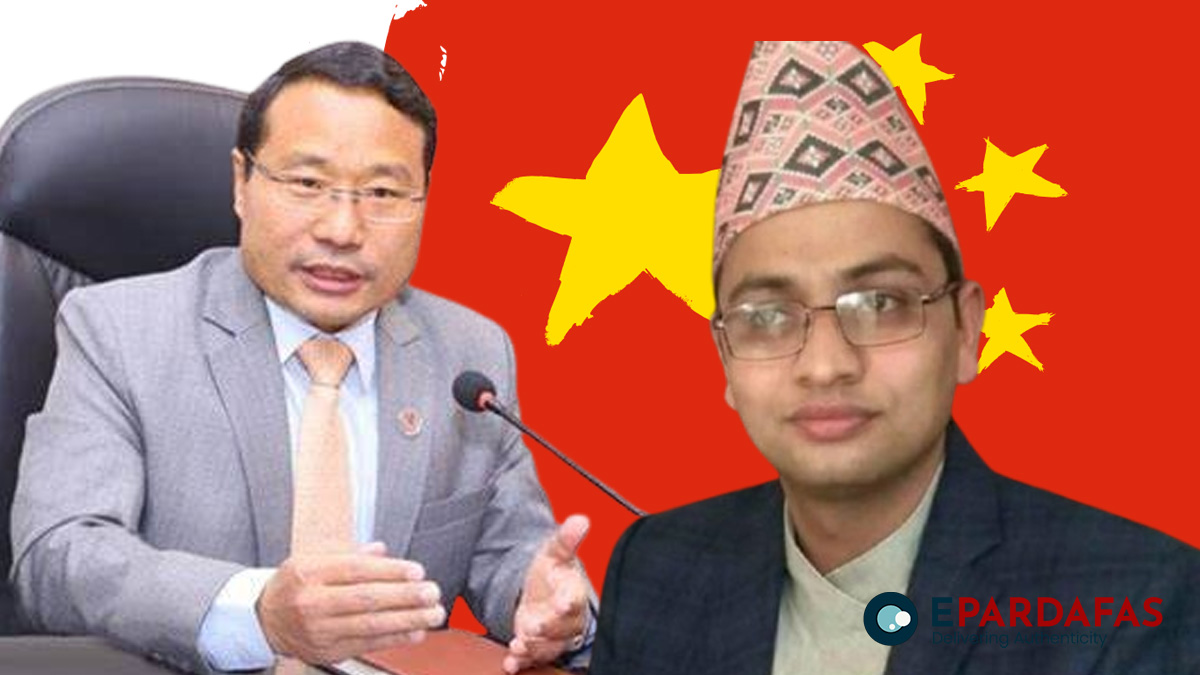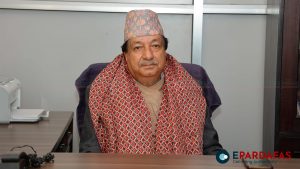
Top CPN-Maoist Leader Barshaman Pun Faces Allegations of $2 Million Fraud in Chinese Fertilizer Deal
In a major controversy involving a high-ranking official of the Communist Party of Nepal (Maoist Center), Barshaman Pun, Deputy General Secretary and an influential leader within the party, has been accused of defrauding a Chinese citizen of over $2 million alongside associates linked to previous smuggling and procurement scandals.
Pun, a longstanding Member of Parliament representing Rolpa, has held several key ministerial roles, including Finance Minister under Maoist Chairman Pushpa Kamal Dahal (Prachanda). However, recent accusations detail Pun’s alleged involvement in an unfulfilled fertilizer supply contract that has strained relations between Nepalese and Chinese business communities. The complaint, which was initially submitted to the CPN-Maoist central office but was reportedly “disappeared” without investigation, was made public through an exposé by the online news outlet Diyopost.
Alleged Defrauding of Chinese Supplier
The complaint alleges that Pun, alongside Bhim Kant Bhandari—a businessman previously implicated in gold smuggling and health procurement controversies—and hotel owner Navin Kumar Tuladhar, exploited the trust of a Chinese company to import 3,500 metric tons of urea fertilizer into Nepal without completing payment obligations. According to the Diyopost report, the Chinese citizen who filed the complaint described it as “an economic crime,” stating that the partnership deceived the Chinese side by failing to make payments despite importing the fertilizer through the Tatopani border.
The complaint further reveals that the Chinese supplier’s decision to trust the Nepali group was heavily influenced by Pun’s political influence, with Bhandari reportedly positioning himself as a close confidant of Chairman Prachanda. According to the complainant, Bhandari purportedly leveraged this connection to assure the Chinese company of the transaction’s legitimacy.
Accusations of Document Forgery and Fraud
The controversy surrounding the fertilizer contract has intensified as the complaint claims the conspirators forged essential documents. Allegedly, documents from Global Matic Singapore and White Globe—companies involved in the contract—were falsified. Furthermore, the complaint states that Sinomac, another company purportedly involved, confirmed that signatures used in the agreement process were fake.
The incident has now raised concerns regarding Nepal’s broader economic security and its relations with Chinese business entities. The complainant described this case as a betrayal not only of their trust but also of the broader principles that connect Maoist cadres across countries, expressing hope for a thorough investigation and punishment for those responsible.
Background of Key Figures and Ongoing Investigations
Bhandari, a former government employee from Gulmi, reportedly entered the business sector through Pun’s influence after working in Pun’s secretariat during his tenure as Energy Minister. Bhandari’s profile rose dramatically when he became involved in high-profile business ventures, including procuring medical supplies during the COVID-19 pandemic—a contract marred by allegations of corruption. According to financial records, Bhandari’s investments have grown exponentially over recent years, with evidence of significant unexplained wealth. In 2022, the Commission for the Investigation of Abuse of Authority (CIAA) filed a case against him, questioning the source of over Rs. 62.4 million. Although acquitted by the Special Court, the CIAA has since appealed the decision.
Tuladhar, another associate named in the complaint, owns the Hotel Himalayan in Lalitpur. His company previously drew scrutiny for alleged smuggling operations, including the illegal transport of high-value Tibetan antelope wool. Tuladhar’s past ties to illicit trade have further complicated the allegations surrounding Pun’s group and their suspected mismanagement of the fertilizer contract.
Party Leadership Under Scrutiny
The scandal has brought unwelcome attention to the CPN-Maoist Center. Maoist Chairman Prachanda has yet to publicly address the allegations, though the controversy has underscored concerns within the party regarding corruption among senior leaders. The complainants, reportedly loyal Maoist cadres, have demanded party leadership take immediate and transparent action, stressing that “our honest Maoist cadre friends have also been cheated by such leaders.”
The implications of the controversy extend beyond the internal dynamics of the CPN-Maoist Center. During Prachanda’s administration, his endorsement of Pun for key government positions, including Finance Minister, was seen as a vote of confidence. Now, with such significant allegations surfacing, Prachanda’s silence has drawn criticism from the public and within the party.
Impact on Nepal-China Relations
This scandal has generated tension in Nepal-China relations, especially given China’s investments in Nepal’s development projects and infrastructure. While the complaint has called for intervention by both the Chinese and Nepalese governments, Chinese officials have refrained from public statements but are expected to closely monitor developments.
The complainants assert that the scandal undermines Chinese businesses’ trust in Nepal and have alerted the Chinese embassy in Nepal and the consulate. They urge a thorough investigation from both governments, emphasizing that the Nepali public and international community deserve transparency regarding Pun’s involvement and any resulting actions from the allegations.
The incident has raised broader questions regarding the integrity of public procurement processes in Nepal, and government officials and agencies are under increasing pressure to address potential loopholes and prevent future scandals. The complainants have called for stringent punishment and for the Maoist party leadership to enforce stricter ethical standards among its members.
Historical Context of the Fertilizer Contract
In September 2021, Agricultural Materials Company Limited called for tenders to import 25,000 metric tons of chemical fertilizers, a vital supply for the country’s agricultural sector. The contract, worth $23.7 million, was awarded to a joint venture, including Bhandari’s company. However, supply delays led to fertilizer shortages, forcing farmers to plant crops without adequate inputs. Consequently, the Agricultural Materials Center blacklisted Bhandari’s joint venture, which also sparked frustrations among farmers and public officials.
Next Steps and Public Response
As the investigation continues, members of the public and Maoist supporters await a response from the party and government. Calls for reform in procurement practices are intensifying, with many demanding accountability for political figures implicated in financial misconduct. The incident has cast a shadow on the reputation of senior leaders, whose involvement in high-profile projects is now under increased scrutiny.
The scandal has fueled public debate about political corruption in Nepal, with citizens and officials demanding transparency and justice for those affected by this fraud.
Read Full Text of Complain Latter:













Comments